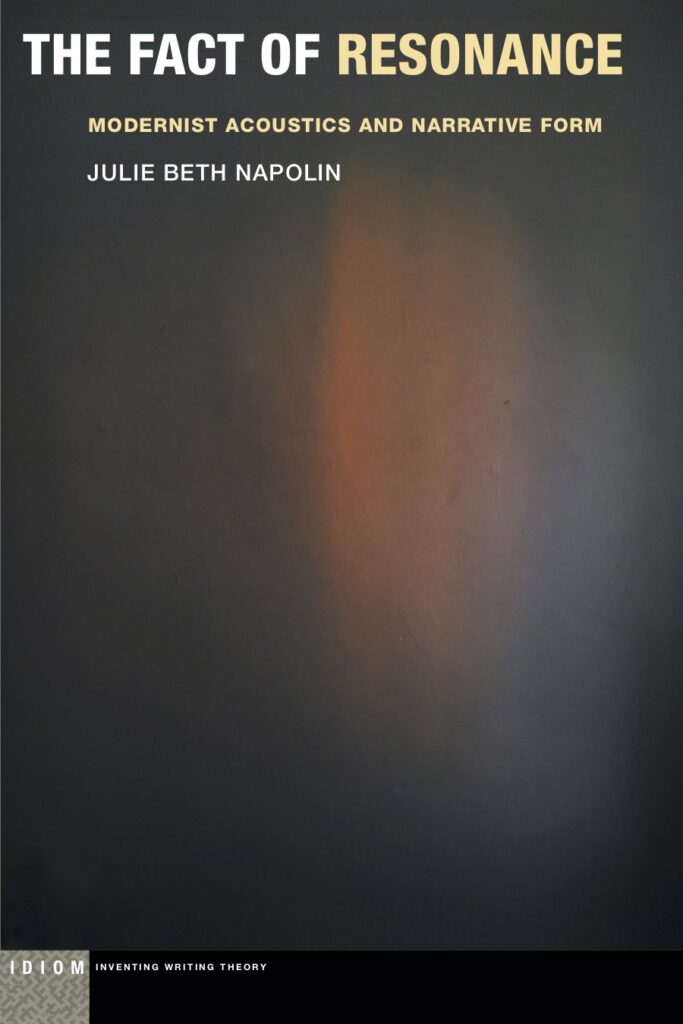Writing
Julie Beth Napolin studies the history and theory of sound and its intersections with the novel, film, art, performance, psychoanalysis, gender, and race, asking what practices of listening can tell us about the politics of memory and form. She is the co-Editor of the William Faulkner Journal, a member of the editorial board of Sound Studies: An Interdisciplinary Journal, and the former President of the New School chapter of the American Association of University Professors. She received her PhD in Rhetoric from UC Berkeley.
Napolin’s first monograph, The Fact of Resonance: Modernist Acoustics and Narrative Form (Fordham UP, 2020), returns to the colonial and technological contexts in which anglophone and francophone narrative and novel theory developed, seeking in “resonance” an alternative premise for theorizing modernist narrative form. It follows transformations in narrative acoustics through the resonances between the work of Joseph Conrad, Frantz Fanon, Sigmund Freud, W.E.B. Du Bois, William Faulkner, and Chantal Akerman. In 2021, the book was shortlisted for the Memory Studies Association first book award.
A new book project, “After Images,” is a study of aural testimony, witnessing, and recitation, of the imprint of sound and voice on memory in instances where images fail to appear or are otherwise blocked from civic and political reckoning.
Having been Associate Director of The Digital Yoknapatawpha Project and a reporter for KALW’s Philosophy Talk, Napolin continues to work on a digital sound projects. In 2020, she produced an oral history of Henry Street Settlement in the time of COVID-19, a project that was acquired by the New York Public Library.
For more information and CV, go here.

Published Work
- March 1, 2023 The Otherworldliness of Bessie Smith
- May 30, 2022 Surface Listening: Free Association and Recitation in The B-Side
- June 6, 2021 The Expropriated Voice: Sonority, Intertextuality, Flesh
- January 25, 2020 Music’s Unseen Body: Conrad, Cowell, Du Bois, and the Beginnings of American Experimental Music
- September 16, 2017 On Banishing Socrates’ Wife: The Interiority of the Ear in Phaedo
- May 11, 2017 Elliptical Sound: Audibility and the Space of Reading
- January 11, 2017 An Acoustics of Determination in Faulkner and Benjamin
- February 21, 2016 The Audiophonic Form of As I Lay Dying
- June 27, 2014 Lecture: Banishing Socrates’ Wife (2014)
- March 1, 2013 “A Sinister Resonance”: Vibration, Sound, and the Birth of Conrad’s Marlow